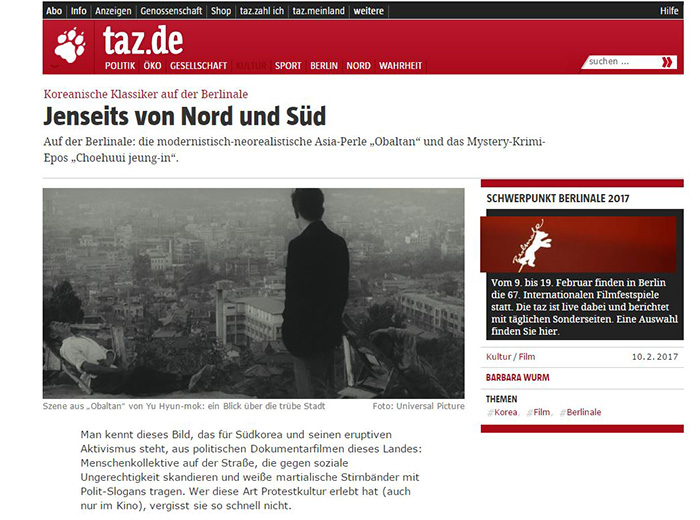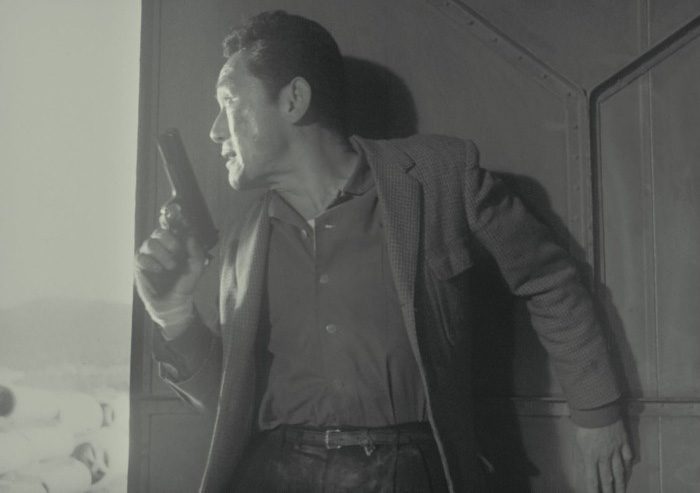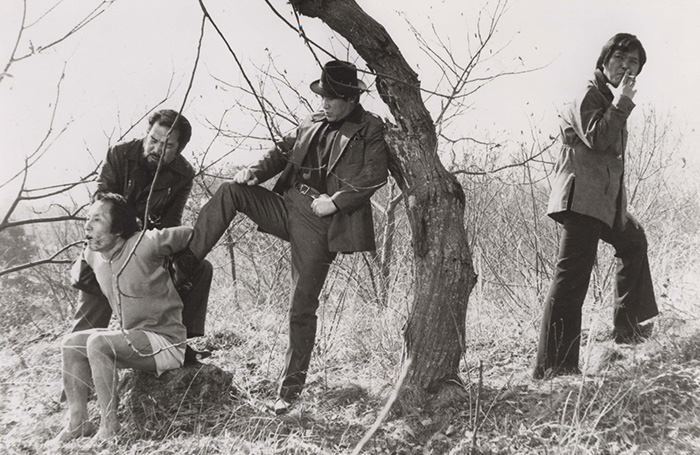
Die Tageszeitung, a German daily, publishes an article titled 'Beyond the North and South' on Feb. 10, praising two Korean films that show the aftermath of the Korean War: 'An Aimless Bullet' (1961) and 'The Last Witness' (1980).
"Korea has shown on the screens of its movie theaters the powerful outcry of a civil uprising."
This is how Die Tageszeitung, a German daily, reviewed two Korean films, "An Aimless Bullet" (오발탄, Obaltan) (1961) and "The Last Witness" (최후의 증인, Choehuui jeung-in) (1980), right before their re-screening at this year's Berlin International Film Festival.
In an article published on Feb. 10 titled "Beyond the North and South" (Jenseits von Nord und Süd), the newspaper discussed the cultural significance of the two films that stand as landmarks in the history of Korean cinema.
"The films, which were made during two distinct transition periods in Korea's democratic movement, both contain enormous political force," explained the newspaper. "In particular the film 'An Aimless Bullet,' directed by Yu Hyun-mok, was recognized by early critics for conveying feelings of compassion towards the 'enemies' in the North for the first time, back in the 1960s. Globally, the film is considered one of the representative works of neo-realism in the history of Asian cinema."

A scene from the 1961 black and white film 'An Aimless Bullet' shows Korean society on the verge of a civil uprising in the period following the Korean War (1950-1953).
The article says that, "Some of the most memorable scenes from 'An Aimless Bullet' are the sequences that portray the intense protest movement of the 1960s, in a cinematic style commonly reserved for political documentaries.
"This family drama, which unfolds in the midst of a vicious cycle of social unrest, is beautifully presented in cinematography and direction," said the paper. "The society in which the movie takes place is a dense fabric woven with circumstance, compromise and capitalism. In this world, those who are too polite or too guided by conscience are doomed to fail. The title, 'An Aimless Bullet,' seems filled with only rage, but we realize the bullet personifies Cheol Ho, the main character, who wanders the post-war streets of Seoul, stuck in a state of stupor due to extreme poverty. The reality of this nightmare reaches its ultimate low point when people rush into the streets to protest for a better future," the article said.

'The Last Witness,' a 1980 film directed by Lee Doo-yong, follows a criminal investigation led by Detective Oh as he confronts the horrors of the Korean War through a series of flashbacks.
The film "The Last Witness," meanwhile, deals with "the plight of those with a conscience who must navigate a society recovering from poverty," said the paper. "During the film's 155-minute run, Detective Oh, the film's protagonist, begins placing himself in the shoes of a North Korean criminal and recalls horrific scenes from the Korean War over and over again. By doing this, Lee Doo-yong, the film's director, forces his hero knee-deep into snowy fields and marshes, metaphors for a corrupt society."
Finally, the article said that the two films, invited to be screened at the Berlin International Film Festival, were digitally restored by the Korean Film Archive as part of an ongoing project to bring back historically relevant films to the big screen.
By Lee Hana
Korea.net Staff Writer
Photos: Berlin International Film Festival
hlee10@korea.kr